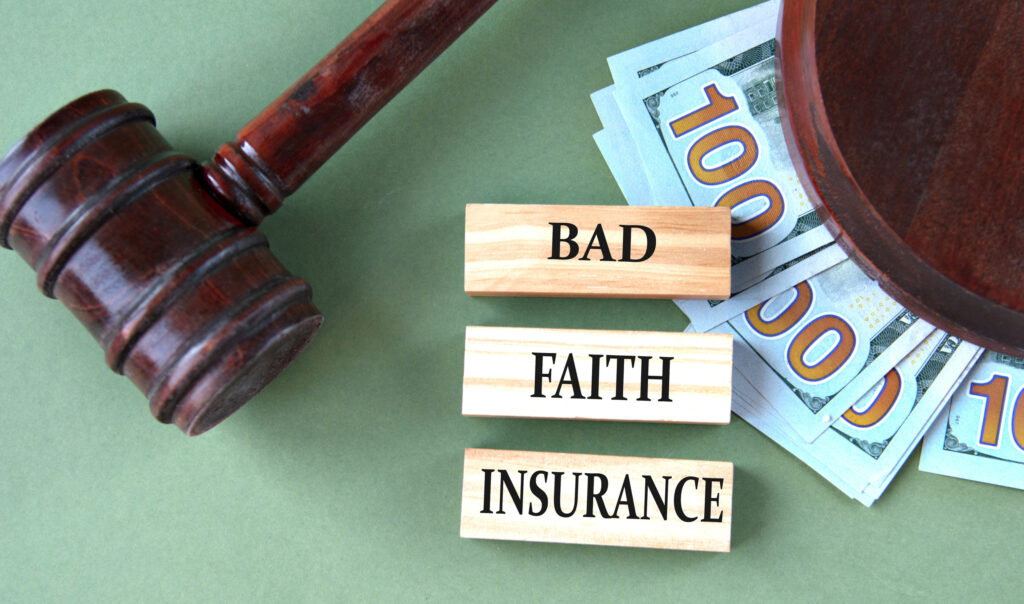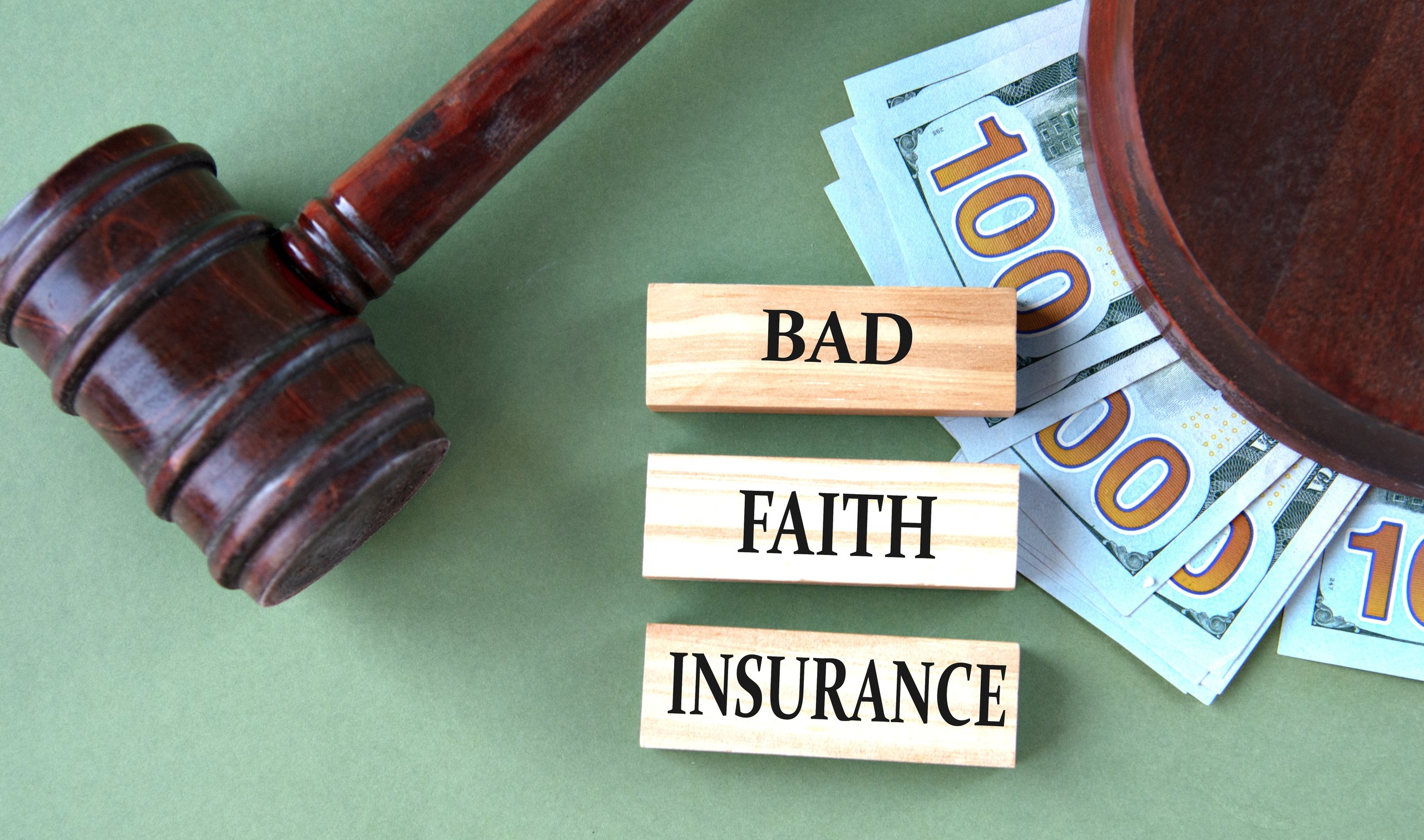Understanding Bad Faith Insurance Practices After a Car Accident
After a car accident, you’re often overwhelmed with physical recovery, paperwork, and unexpected expenses. In such vulnerable moments, most people assume their insurance company will act in their best interest. Unfortunately, this trust is often betrayed through bad faith insurance practices. When an insurer deliberately delays, undervalues, or denies your claim without legitimate reason, they may be acting in bad faith—and you may be entitled to compensation.

This guide explains what bad faith is, how to recognize it, and what legal actions are available if you’re mistreated after a car accident.
What Is Bad Faith in Insurance?
Definition and Legal Duty
Insurance bad faith occurs when an insurance company violates its duty to handle your claim fairly, honestly, and promptly. This legal obligation is part of what’s called the “implied covenant of good faith and fair dealing,” which exists in every insurance contract.
When an insurer breaches this covenant—whether by unnecessary delays, denying a valid claim, or making misleading statements—they can be held liable under bad faith insurance laws.
First-Party vs. Third-Party Bad Faith
There are two types of bad faith:
- First-party bad faith involves your insurer mishandling a claim that you file under your policy. For example, you submit a claim for collision damage after an accident and they deny it without justification.
- Third-party bad faith involves your insurer failing to properly defend or indemnify you in a lawsuit from someone else, such as a driver you injured in an accident.
Common Tactics Used by Insurance Companies in Bad Faith
1. Unjustified Denial of Valid Claims
One of the most egregious bad faith tactics is denying a legitimate insurance claim without a valid explanation. In many cases, the insurer won’t provide a reason at all—or will cite vague or incorrect policy provisions that don’t actually apply.
For example, your claim might be denied because the insurer claims you failed to submit enough documentation, even though all required records were sent on time.
2. Unreasonable Claim Delays
Some insurance companies will delay processing your claim for months, citing internal reviews or missing paperwork. In truth, they may be intentionally stalling in the hopes that you’ll give up or accept a lower offer.
Repeated requests for the same documents or “losing” paperwork are red flags. So is vague communication like “we’re still reviewing your file” without specific timelines.
3. Lowball Settlement Offers
Another common strategy is offering a settlement far below what your claim is worth. Insurers know that after an accident, you’re dealing with medical bills, car repairs, and lost income—and they may exploit this pressure to force you into accepting less.
For example, an insurer might offer you $1,500 to settle a claim worth $12,000. This is not a negotiation tactic; it’s bad faith.
How to Tell If You’re a Victim of Bad Faith
Red Flags to Watch For
It can be difficult to tell the difference between an honest mistake and intentional misconduct. However, certain patterns may indicate bad faith:
- Your insurer denies your claim without giving a written explanation.
- Representatives avoid phone calls or emails for extended periods.
- The company keeps asking for more information, even after you’ve sent everything.
- The adjuster claims that certain damage isn’t covered—even though your policy clearly says it is.
- You’re pressured to accept a quick payout that seems far too low.
Trust Your Instincts
If something feels off in the way your claim is being handled, trust your gut. Insurers often count on policyholders not knowing their rights or being too overwhelmed to fight back.
When communication is evasive and settlement offers seem unfair, those are warning signs that deserve attention.
Real-Life Examples of Insurance Bad Faith After a Car Accident
Denied Despite Medical Records
Imagine being injured in a car crash, submitting hospital records, doctor’s notes, and a police report to your insurer—only to have your claim denied with no explanation. One policyholder faced exactly this, only receiving a proper review after hiring a lawyer.
“Lost” Documentation Leading to Delays
In another case, an insurer delayed payment for nearly four months by claiming the submitted documents were lost. The policyholder had to resubmit everything twice and still didn’t receive a decision until a formal complaint was filed with the state insurance department.
False Claim of Lapsed Coverage
In a third example, an insurance company denied a claim stating that the policyholder had failed to pay their premium. However, the driver had proof of automatic payments being made on time. The denial was eventually overturned in court, and the insurer was forced to pay damages.
These are not rare occurrences. Many drivers are quietly subjected to similar treatment and never realize they have legal recourse.
Steps to Take If You Suspect Bad Faith
1. Request a Written Denial or Explanation
Start by asking the insurer for a written reason for the delay or denial. This document becomes key evidence if legal action is needed later.
2. Review Your Insurance Policy Carefully
Look closely at your policy to understand what’s covered and what the insurer is obligated to do. Pay special attention to coverage exclusions, deadlines for filing, and the definitions used.
3. Document Every Interaction
Keep a record of all phone calls, emails, letters, and voicemails. Write down who you spoke to, what was said, and when. If you speak to someone by phone, follow up with an email summarizing the conversation to create a paper trail.
4. File a Complaint With Your State’s Insurance Department
Every state has a department that oversees insurance companies. Filing a complaint can trigger an investigation and may pressure the insurer to act properly.
5. Contact a Bad Faith Insurance Attorney
If your insurer continues to stonewall, undervalue, or misrepresent your claim, it’s time to talk to an experienced attorney. Legal professionals can evaluate whether the insurer’s behavior meets the threshold for bad faith and can help you file a lawsuit if needed.
Legal Remedies for Victims of Insurance Bad Faith
What You May Be Entitled To
If your insurer is found guilty of bad faith, you may receive far more than just the original claim amount. Courts often award punitive damages to punish insurers and deter future misconduct.
You could also recover compensation for financial losses caused by delays, emotional distress, and legal expenses. In some states, policyholders have successfully received double or triple the original claim value as a result of bad faith litigation.
Deadlines Matter
There are strict time limits—called statutes of limitations—for filing a bad faith lawsuit. These vary by state and may range from one to four years. Acting quickly ensures you don’t miss your window for legal recourse.
When Should You Contact a Lawyer?
Early Legal Guidance Pays Off
If you feel overwhelmed or suspect that your insurer isn’t acting in good faith, don’t wait. Consulting a lawyer early in the process can clarify your rights and improve your chances of a successful outcome.
Lawyers who specialize in insurance bad faith typically offer free initial consultations and often work on contingency, meaning they only get paid if you win. They’ll handle communications with the insurer, collect evidence, and build a strong legal case on your behalf.
Frequently Asked Questions (FAQ)
What exactly qualifies as bad faith by an insurance company after a car accident?
Bad faith occurs when your insurance company does not honor its legal obligation to treat your claim with honesty, fairness, and promptness. This might involve denying your claim without a valid reason, delaying payment unreasonably, misrepresenting coverage, or offering an unfairly low settlement. The key factor is whether the insurer’s actions were intentional and unreasonable, rather than simply negligent or mistaken.
Can I sue my insurance company if they act in bad faith?
Yes, you can file a lawsuit against your insurer if they have acted in bad faith. This type of legal action seeks to recover not only the amount of your original claim but potentially additional damages for emotional distress, punitive damages meant to punish the insurer, and reimbursement of your attorney fees. The ability to sue and the damages available will depend on your state’s laws.
How do I prove that my insurer acted in bad faith?
To prove bad faith, you must show that your insurer’s behavior went beyond poor service and entered the realm of unjustifiable misconduct. This includes gathering evidence like written communications, denial letters, delay timelines, claim documentation, and notes from phone conversations. An attorney can help analyze these materials and determine whether the evidence supports a bad faith claim.
Is a delay in payment always a sign of bad faith?
Not necessarily. Some delays are legitimate—for example, if the insurer is waiting on accident reports, medical records, or third-party evaluations. However, when delays are excessive, unexplained, or used to pressure you into accepting less than your claim is worth, they may be a sign of bad faith. If you are given conflicting answers or no explanation at all, you should be concerned.
How much compensation can I receive in a bad faith insurance case?
If you win a bad faith lawsuit, you may receive the full value of the original claim that was denied or underpaid. In addition, you could be awarded compensation for emotional stress, lost time, attorney fees, and in some cases, punitive damages if the insurer’s actions were particularly egregious. Some states allow for double or even triple the amount of the original claim as a penalty against the insurance company.
Take Action: You Deserve Fair Treatment
If your car accident claim has been denied, delayed, or undervalued, know this: you have options. Insurance companies are not above the law. The moment you suspect bad faith, start collecting evidence, document everything, and contact a qualified attorney.
Bad faith practices can derail your financial recovery, but with the right legal support, you can fight back and get the compensation you’re owed. Your claim isn’t just paperwork—it represents your right to be made whole after a traumatic event.
Contact Lawlor, White & Murphey Today
Insurance companies are supposed to protect you in times of need—not create additional hardship. If you’re being mistreated after a car accident, don’t let the insurer’s tactics discourage you. Stand up for your rights, get informed, and take action.
You don’t have to go it alone. Help is available. Reach out to Lawlor, White & Murphey today and take the first step toward justice.
